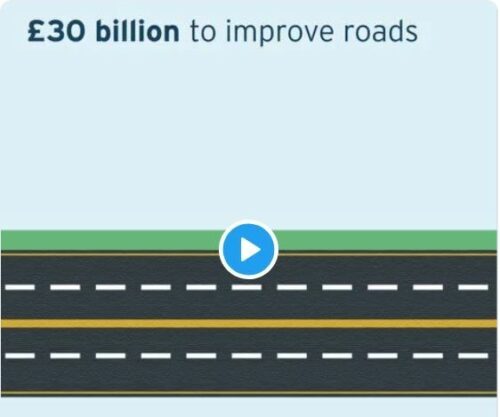
The next government changes to Vehicle and Excise Duty (VED) – which is more commonly known as car tax – will be coming into force from April 2019.
Ultimately, car tax costs for motorists will rise from 1st April 2019, so if you're thinking of buying a new car, there are some important changes to car tax to get clued up on.
We have created a 2019 Car Tax FAQ to help you understand exactly out how much it will cost you.
2019 CAR TAX FAQs
What did the Budget say about VED?

The plan to increase car tax was included in last year's Autumn Budget, which stated that VED would increase in line with inflation in April 2018 and April 2019 for all cars, not just new models.
Mr Hammond’s House of Commons speech explained how much-needed funds to improve road safety and reduce congestions, were behind the tax inflation.
In fact, £30 billion, will be raised by the increase in VED and will be used to continue to pay for upgrades and maintenance to England’s motorways and major roads between 2010 and 2025.
How will the April 2019 rise in VED impact you?
For most drivers, annual car tax will increase by £5 per year to help pay for budget plans. The most significant rise for existing owners is for those with high emissions models who will be charged up to an additional £15.
If you're buying a new car, then you will pay road tax based on the system that was introduced on 1 April 2017, updated in April 2018, and is set to receive an inflationary increase in April 2019 of £65 per year.
The new rates for VED from 1 April 2019 were clarified in the Overview of Tax Legislation and Rates document released by the government as follows:
- For new cars, first year VED rates could rise by as much as £65 for vehicles with high CO2 emissions over 255g/km
- Diesel cars that do not meet the RDE2 emissions standard (to be introduced in 2020) will continue to have to pay a higher tax rate, as first established from April 2018.
- Even some of the most eco-friendly petrol, diesel and hybrid cars will incur a £5 first rate VED rise, rising accordingly with the vehicle’s production of CO2 emissions
Below is a table to show individual VED increase rates for first year (new) cars registered after April 2019.
|
Emissions (g/km) CO2 |
Increase on first year VED rate petrol and RDE2 diesel cars 2018-2019 |
Increase on first year VED rate for non-RDE2 diesel cars 2018-2019 |
Increase on alternative fuel cars 2018-2019 |
|---|---|---|---|
|
0 |
£0 |
£0 |
£0 |
|
1-50 |
£0 |
£0 |
£0 |
|
51-75 |
£0 |
£5 |
£0 |
|
76-90 |
£5 |
£5 |
£5 |
|
91-100 |
£5 |
£5 |
£5 |
|
101-110 |
£5 |
£5 |
£5 |
|
111-130 |
£5 |
£5 |
£5 |
|
131-150 |
£5 |
£15 |
£5 |
|
151-170 |
£15 |
£25 |
£15 |
|
171-190 |
£25 |
£40 |
£25 |
|
191-225 |
£40 |
£55 |
£40 |
|
226-255 |
£55 |
£65 |
£55 |
|
Over 255 |
£65 |
£65 |
£65 |
When do the VED changes take effect?
The previous changes for new cars bought on or after April 1st 2018 have now taken place, and we now wait for 2019 changes to be implemented on 1 April 2019. So, for example, those who take delivery of a new car in March 2019 or before, will not be charged under the new 2019 rates.
Will the changes affect the amount I pay for my existing car?
Yes. If your car was registered between 2001 and 2017 you will also have to pay more VED from next year – which for most will mean a car tax increase of between £5 and £15 depending on the emissions output of their vehicle.
Here's how much more motorists will pay for existing cars based on their car tax band:
|
76g/km and 150g/km CO2 |
£5 |
|
151-170 g/km CO2 |
£15 |
|
171-190g/km CO2 |
£25 |
|
191-225g/km CO2 |
£40 |
|
226-255g/km CO2 |
£55 |
|
255g/km CO2 |
£65 |
What changes have already been made to VED?
Previously the amount of car tax owed depended on what VED tax band a vehicle fell into, with each band being defined by CO2 emission levels. As a result, people who owned low emission vehicles paid less tax (or no tax for some alternative fuel vehicles), but those who drove high emission vehicles paid more.
Most notably, a standard rate tax to be paid from the second year was changed to:
- £140 for all petrol and diesel powered vehicles
- Pure electric cars remained tax free
- New hybrids would be charged £130 annually from the second year
More recently, 2017/18 rules also introduced a premium tax on all vehicles that costs more than £40,000. Meaning anyone who bought a car worth more than £40,000 (even if it is a pure electric vehicle) is subject to an additional £310 standard rate tax for five years.
Read more about the existing ‘2018 Car Tax Update’ here.



